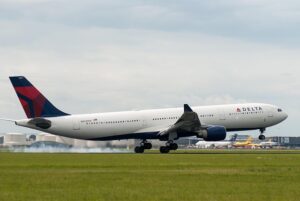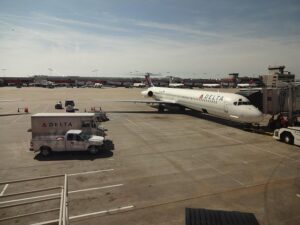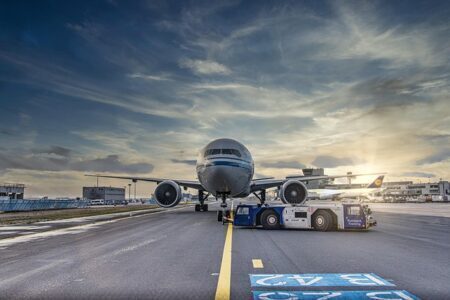Delta Air Lines Ends Service Between Austin and Midland
What Travelers Should Know
Air travel schedules rarely stay the same for long. Airlines constantly adjust routes, balancing demand, costs, and competition. Delta Air Lines announced that it will stop operating flights between Austin Bergstrom International Airport and Midland International Air and Space Port in Texas. The last Delta flight on this route will depart in November 2025, marking the end of the carrier’s presence in Midland. This decision may surprise frequent travelers, but it reflects a broader strategy that airlines follow when they decide where to fly. (Delta Air Lines)
Delta’s withdrawal leaves questions for passengers who used this connection. Business travelers, families, and frequent flyers want to know why the change happened, what options remain, and how it fits into Delta’s larger strategy. The move highlights important lessons about the airline industry, and understanding them helps travelers prepare for future changes.

What Is Changing
In November 2025, Delta will permanently stop flying between Austin and Midland. After that date, anyone looking for flights on Delta between these two cities will not find available options. This move means Midland loses one of the major U.S. carriers, although other airlines remain.
At the same time, Delta air lines plans to continue expanding operations in Austin. Austin Bergstrom has become an important market for the airline. Delta intends to increase nonstop flights to larger U.S. cities such as Denver, Kansas City, and Columbus, while also strengthening Austin’s role as an international gateway with flights to destinations in Mexico, including Cancun and Cabo San Lucas. For travelers based in Austin, the changes may actually create more choice and flexibility, even while passengers in Midland lose direct access to Delta.
Midland travelers, however, are not cut off from air service. Southwest Airlines maintains a strong presence at Midland International, offering direct flights to Dallas, Houston, Las Vegas, Denver, Phoenix, and Austin. This means passengers who used Delta on the Austin Midland route can continue to travel on other airlines without losing access to nonstop service.
ALSO READ: Air Peace
ALSO READ: Understanding 7 best Job Market JOLTS REPORT
Why Delta Made This Decision
Airlines measure the success of routes by how many seats they fill. The Austin Midland service failed to meet expectations. Planes frequently left the gate with too many empty seats, and the demand never reached a level that could support the costs of running the flights. With fewer than two thirds of the seats sold on many trips, the service became unprofitable.
Operating a route involves more than flying a plane between two cities. Airlines must pay for gates, ground staff, fuel, maintenance, and crew scheduling. If revenue from passengers cannot cover these costs, the airline must either raise fares, which often drives away more customers, or shut the service down. In this case, Delta chose to discontinue the flights.
Ending this service frees resources that Delta can use elsewhere. Planes and crews previously tied to Midland can now fly to markets with stronger demand. A plane that struggled to fill on the Midland route may achieve much higher revenue on a flight from Austin to Denver or Cancun. From a business standpoint, this allows Delta to maximize efficiency and profitability.
Local officials in Midland expressed disappointment at losing Delta but promised to continue investing in airport infrastructure and working to attract new airlines. This illustrates a broader challenge for smaller airports, which must compete aggressively to keep air service as airlines focus more on larger hubs and high-demand routes.

What Travelers Should Do
Travelers who purchased Delta tickets for the Austin–Midland route after November 8, 2025, will not be left stranded. Delta will contact affected passengers directly with information about refunds, travel credits, or rebooking options. The key step for travelers is to wait for Delta’s instructions rather than cancel reservations on their own. Canceling independently could reduce refund eligibility or limit the choices Delta provides.
For those who still need to fly between Austin and Midland, Southwest offers nonstop flights and will likely remain the easiest option. Other carriers serve Midland with connections through larger hubs, so passengers can still reach the city with relative ease. Frequent Delta flyers in Midland, however, may need to adjust their loyalty strategies. Without Delta, earning SkyMiles or maintaining status becomes harder for local residents, and some may choose to switch to airlines with stronger service in the region.
How This Fits Into Delta’s Larger Strategy
Delta’s decision does not stand alone. It reflects a broader pattern of adjustments the airline has made in recent years. Delta, like every major airline, constantly reviews its network and makes changes based on performance, profitability, and strategic goals.
In 2024, Delta faced one of its biggest operational challenges when a global software issue triggered system wide failures. A flawed update from a major cybersecurity company caused reservation systems and crew scheduling platforms to crash. Delta had to cancel more than 7,000 flights in less than a week, leaving thousands of passengers stranded and forcing the airline to spend millions on recovery efforts. Regulators later determined that Delta should have had stronger backup systems, and the incident led to lawsuits and intense scrutiny.
In 2025, weather disruptions created further challenges. Severe storms at Atlanta, Delta’s largest hub, grounded flights for days and caused nearly 1,000 cancellations in a single weekend. The situation disrupted connections across the country and frustrated passengers. Delta responded by going beyond federal requirements, offering hotel reimbursements, rental cars, and even paying for tickets on competing airlines to help stranded customers.
These experiences showed Delta the importance of focusing on efficiency and reliability. Cutting underperforming routes like Austin–Midland allows the airline to concentrate on markets where it can deliver both profitability and strong service.

Impact on Different Travelers
The loss of Delta service between Austin and Midland will affect different groups in different ways. Business travelers in the energy industry make up a large portion of Midland’s passenger base. Many of them flew regularly between Austin and Midland for meetings or site visits. Without Delta, these travelers must rely more heavily on Southwest or connect through larger airports like Dallas or Houston. This may reduce flexibility and could increase fares on busy days.
Leisure travelers, including families visiting relatives or planning trips across Texas, will likely adapt more easily. Southwest’s nonstop flights still provide convenient options, and connections remain available through other cities. The loss of Delta may create some inconvenience, but it does not cut Midland off from the rest of the country.
Frequent Delta flyers who live in Midland face the biggest disruption. Without direct flights, they must either connect through distant airports or change their loyalty program altogether. For travelers who value earning SkyMiles, the change makes it harder to justify sticking with Delta if other airlines provide more convenient schedules.
What This Means for Midland
Losing Delta represents a setback for Midland International, but the airport remains active and connected. Southwest continues to operate a large share of flights, and other airlines maintain service to important hubs. The city’s economy, driven by energy and oil, ensures ongoing demand for air travel, and that demand will continue to attract airlines.
Local leaders have already expressed plans to continue investing in the airport to make it more attractive to carriers. Their long-term goal is to expand service and strengthen connections, even without Delta. While losing a major airline hurts, Midland remains positioned as an important regional airport in Texas.
Lessons Travelers Can Learn
This situation highlights several important lessons for travelers. Airline routes are never guaranteed, even if they have existed for years. Travelers should always confirm schedules before planning trips months in advance. Relying too heavily on a single airline can backfire when route changes occur, so building flexibility into travel routines is essential.
It also shows the importance of backup options. Knowing which other airlines serve your local airport can save time and stress when changes happen. Patience is another key lesson. When airlines cancel flights, waiting for official guidance ensures you receive the full range of refund or rebooking options. Finally, flexibility with airports, dates, or airlines helps travelers adapt to sudden changes with minimal disruption.
Industry Trends Behind the Change
The decision to cancel Austin Midland reflects several broader industry trends. Smaller cities and secondary routes face greater risk of losing service as airlines prioritize major hubs. Profitability remains the top factor in every decision. If a flight fails to cover its costs, airlines will redirect resources elsewhere.
Competition often steps in when one carrier leaves. In this case, Southwest benefits the most, as it already offers strong service at Midland. American Airlines also has opportunities to capture more passengers connecting through Dallas and Houston. At the same time, hub dominance continues to grow, with airlines investing more heavily in cities like Atlanta, Dallas, Houston, and Los Angeles while scaling back in smaller markets.
How Travelers Can Prepare for Future Changes
Travelers can protect themselves from disruptions by taking proactive steps. Signing up for airline alerts ensures that you hear about cancellations or schedule changes as early as possible. Staying flexible with travel dates and times makes it easier to find alternative flights when needed. Monitoring multiple airlines rather than relying on one carrier provides more options when routes shift.
Understanding your refund rights is also crucial. U.S. law requires airlines to provide full refunds when they cancel flights, but many passengers do not know this. By learning the rules, travelers can avoid losing money or settling for credits when cash refunds are available. Finally, keeping backup plans in mind such as rental cars, trains, or alternative airports can reduce stress when flights disappear.
Conclusion
Delta Air Lines will end all flights between Austin and Midland in November 2025. The route suffered from low demand, and Delta decided to redirect resources toward more profitable destinations. While the decision affects business travelers, leisure passengers, and Delta loyalists in different ways, alternatives remain available through other airlines. Southwest continues to provide nonstop service, and connections through major hubs keep Midland accessible.
This move illustrates how quickly airline networks can shift. Routes that exist today may not exist tomorrow, and travelers must adapt. By staying flexible, learning refund rights, and preparing backup plans, passengers can handle cancellations with less stress. Airlines will always focus on profitable markets, but travelers who understand the industry and remain adaptable will continue to reach their destinations smoothly.
